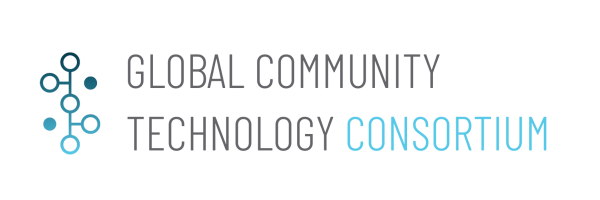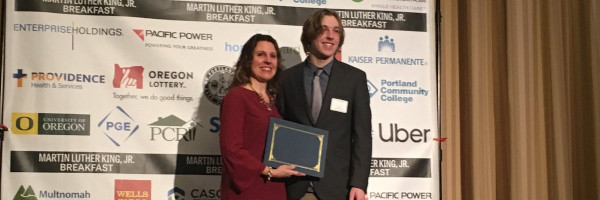Breaking the Code The UN-hackathon
| Breaking the Code The UN-hackathon | |
|---|---|

| |
 UN-hackathon | |
| Team Organizations | Technology Association of Oregon GCTC Thriving Communities Group - Portland Coalition of Communities of Color Digital Inclusion Network Urban League of Portland Native American Youth and Family Center Self-Enhancement Inc BluePrint Foundation The Numberz.fm |
| Team Leaders | Kory Murphy |
| Participating Municipalities | Multnomah County OR |
| Status | Ready for Public Announcement |
| Document | None |
Description
Multnomah County, Oregon is partnering with Technology Association of Oregon (TAO) and other local groups to host a community collaborative problem solving event and an ongoing, community-based technology incubator called Breaking the Code.
We aim to break some of the barriers that exist among organizations that specifically serve people of color and the broad, local tech community. Partnering together gives us a platform to bridge the gap between the two and provide opportunities for Community Based Organizations (CBO’s) to become more efficient and effective in their targeted service delivery. A longer term goal is the creation of community-based and community-led technology start-ups.
Breaking the Code’s framework leverages assets from the public sector (data, staff, technology platforms, public infrastructure, small business incubation, etc.), and the technology industry (technology solutions, expertise, professionals, funding, etc.) with the goal of making CBOs more successful serving their community.
This, in turn, fulfils the promise of smart cities as “thriving communities” with well being across the life span, equity and access, sustainability, resiliency, and vibrant arts and culture.
Challenges
Infrastructure gaps in service delivery impair CBO’s ability and effectiveness to meet the needs of poorer, geographically marginalized, cultural communities.
Some CBO’s are still using paper intake forms during outreach in marginalized communities.
Local government and tech community face challenges with effective, meaningful engagement with local poorer, geographically marginalized, cultural communities.
Community driven start-ups often struggle with a lack of access to entrepreneurial and venture capital networks, cutting-edge expertise, business mentoring and capital funding.
Solutions
Local governments and tech communities have resources, knowledge, and experience in infrastructure, innovation, and business development. CBO’s have experience and relationships with the users and local communities and cultures.
Our solution is to create a program to connect these groups together.
Major Requirements
- Develop and assemble project team
- Create scope and requirements, project plan
- Engage and Identify CBO’s
- Engage local govt & tech community
- Prep CBO’s to “pitch” challenges
- Provide Education, theory and finding re. smart city technology and thriving communities (e.g., promoting wellbeing across the life span, equity, sustainability, resiliency, and vibrant arts and culture).
- Pitch challenges; collaborative design teams are created
- Teams design prototypes from July-Oct
- Prototypes are presented to public
- Business development and access to capital support for community projects or start-ups based on prototypes going forward.
Performance Targets
| Key Performance Indicators (KPIs) | Measurement Methods |
|---|---|
|
|
Standards, Replicability, Scalability, and Sustainability
Each team is encouraged to build a solution that is effective and scalable for the specific CBO. Programs will also be evaluated for their innovation and promise, interoperability, potential for replicability, and the sustainability of their service delivery model.
Cybersecurity and Privacy
The UN-Hackathon is designed to help identify the local community’s questions and needs for privacy and cybersecurity and to empower them to take leadership on solutions and partnerships in this regard (e.g., privacy of CBO electronic records, addressing community surveillance concerns, etc.). The CBO’s are typically the best judge of their privacy and security requirements. Some have adopted standards due to the nature of the services they provide (e.g., for some of the public health and safety CBOs, blockchain technology is being proposed for more secure transactions). The design and prototype process is also an opportunity to educate CBO’s about security and privacy issues. This program is in keeping with new Portland, OR initiatives on citizen privacy and cybersecurity: https://www.portlandoregon.gov/bps/article/729680
Impacts
- Every CBO expands/improves its ability to serve their community through technology and/or design.
- All CBO’s are supported well by local government and tech community.
- Innovative useful solutions are designed.
- Multi-ethnic/multi-cultural project teams collaborate well.
- Everyone who participates benefits from the experience.
- Teams continue working on projects after the prototype stage.
- The TAO will work to connect project teams to resources as needed. These might include:
- Mentors from local and national tech companies and startups
● Volunteers from local tech companies to fill in for volunteers who might not be able to commit as much time following Digital Inclusion Week ● Established tech companies to provide enhanced capacity and resources ● An opportunity to integrate the use-case/challenge and early work of the project team into the annual Greater Portland Tech Challenge event, which is scheduled for February, 2020. ● Longer Term Vision: Prototypes can become their own start ups and generators of community led businesses.
Demonstration/Deployment
Key Dates:
- Publicity goes out: June 2019
- Proposed pitch dates: July 30, 2019
- Pitches Approved: Summer 2019
- Ongoing Collaboration dates: Summer - Fall 2019, and Beyond
- Demonstration Event Date: Digital Inclusion Week / Global Tech Jam September 2019
- Website: In Development
"Human Factors" is not in the list (Buildings, Cybersecurity and Privacy, Data, Education, Public Safety, Rural, Smart Region, Transportation, Utility, Wellbeing, ...) of allowed values for the "Has sector" property.